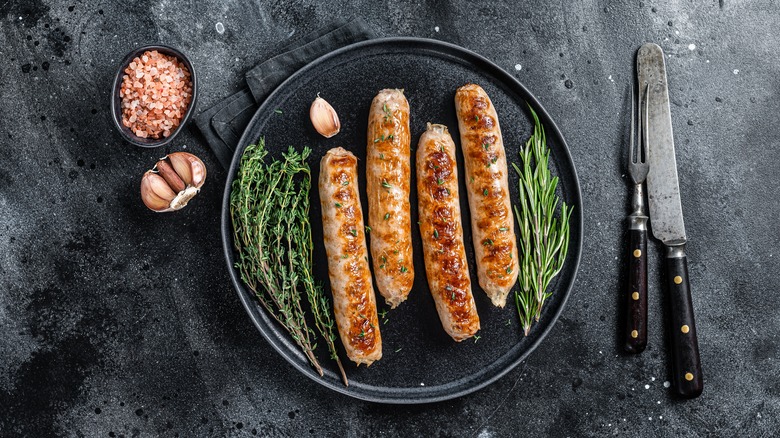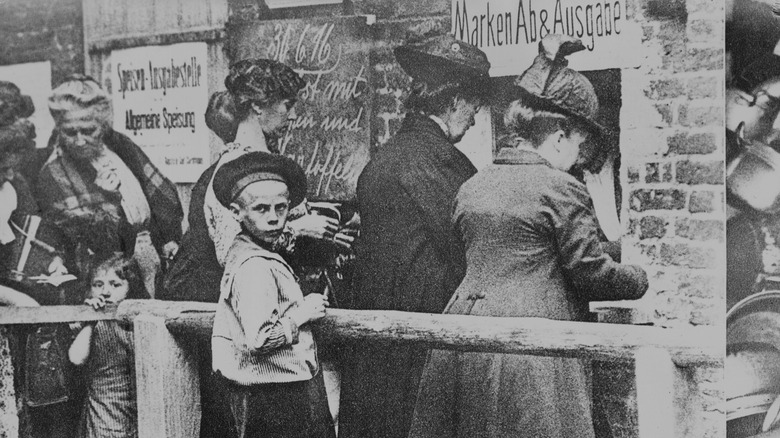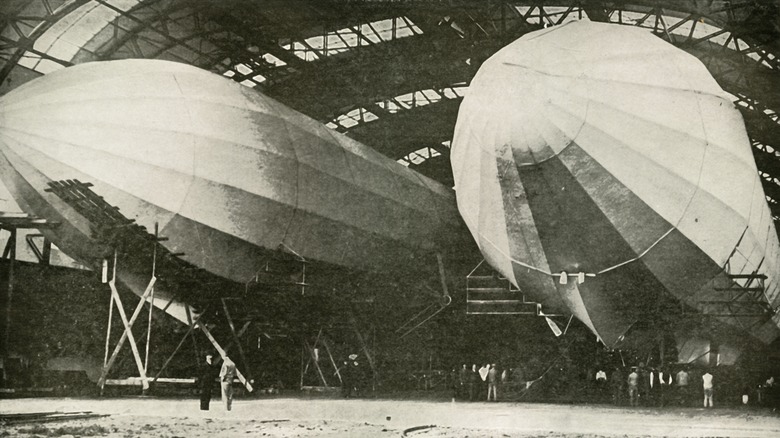The Surprising Reason Germany Banned Sausage During WW1
When a nation was fighting a world war in the 20th century, its people were expected to make sacrifices. From food rationing to scrap drives, civilians were asked to put aside personal comforts to help advance the war effort. During World War I, the United States government asked American citizens to cut back on staples like wheat, meat, and sugar in order to ensure there was enough food supply to send to soldiers fighting on the front lines, according to History. But, Americans were far from the only citizens giving things up to help support their troops. Other nations fighting in the war were also facing food shortages, and asking their civilians to step up in order to do their part to help win the war.
During World War I, food rationing was particularly hard felt in Germany. In November 1914, the British Navy implemented a blockade on Germany, who had grown increasingly dependent on foreign sources for many essentials. While foodstuffs were one of their most significant imports, Germany also relied on foreign powers for items that supported their own domestic agriculture, like fodder and fertilizer, according to Everyday Lives in War.
Germans faced food shortages during World War I
As a result of the blockades, food shortages became rampant across the country. Germany's agricultural industry was simply not large enough to support their entire population. The problem was only worsened by the fact that many farmers were already busy fighting in the war, not working in the fields. Farmer's wives took over the running of the farm, but the lack of imported equipment meant far lower yields than usual, according to Everyday Lives in War. As a result, there was just not as much food to go around as there used to be.
German soldiers fighting in the front lines were the first to receive any food that was produced domestically, according to History Place. To keep their fighting forces strong, ordinary German civilians were instead issued ration coupons in order to purchase limited items, including butter, sugar, fat, coffee, tea, meat, and fruit. People had to wait in line for hours to secure their allotted quantity of these products before supplies ran out. However, there was one other important item Germans were banned from eating during World War I, and it wasn't because of food shortages or the British naval blockade.
Germany used cow intestines to manufacture Zeppelin airships
During the first world war, Germany completely outlawed the production of one of their most famous foods: the German sausage. But, while Bratwurst might have been a popular meal, its production was interfering with the war effort. Some of the same ingredients used to make this popular culinary delight were also used to make one of Germany's most important pieces of warfare. Parts of Germany's infamous Zeppelin airships, which were effectively used in bombing campaigns across Britain, were constructed using cow intestines, according to History.
The hydrogen gas bags that were held on the aircraft were made of cow intestines, and they were not easy to make. According to Business Standard, it took over 250,000 cows to produce a single Zeppelin airship. As a result, sausage production was halted so the government could use any and all available cow insides to manufacture more Zeppelins. Across the country and other German-controlled territories, it became illegal for butchers to use this precious commodity on food instead of putting it towards Zeppelin production. So while food shortages certainly had a huge impact on civilian life, it was far from the only reason Germans were expected to make sacrifices during World War I.


